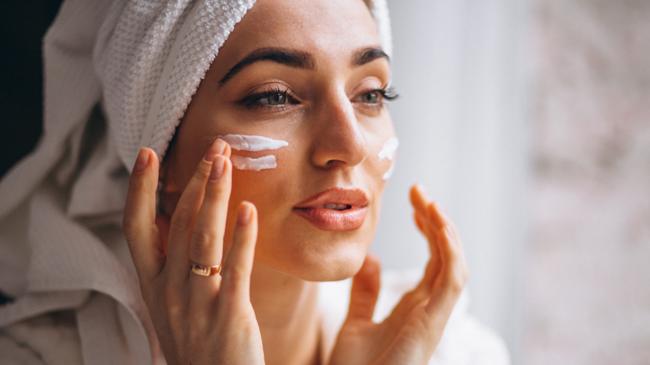Summary
Retinol is known to be an anti-aging powerhouse, and Peter Thomas Roths serum contains microencapsulated retinol for a gentle, slow-release formula that works all night. Its designed to help make skin more radiant, while softening the look of lines and wrinkles.
Source: Page Six

AI News Q&A (Free Content)
Q1: What is retinol, and how does it function in skincare products?
A1: Retinol, also known as vitamin A1, is a fat-soluble vitamin in the vitamin A family. In skincare, retinol acts as an active ingredient to reduce wrinkles and other signs of aging by promoting cellular turnover and enhancing skin renewal. The body converts retinol to retinal and retinoic acid, which regulate gene expression and cellular development within the skin. Its use in topical products is supported by its ability to soften fine lines and improve skin radiance, though high doses may cause side effects like dryness or irritation.
Q2: What are the scientific benefits of microencapsulated retinol in skincare formulations?
A2: Microencapsulated retinol is designed for slow, controlled release, making it gentler on the skin and minimizing irritation. This formulation allows retinol to be delivered gradually, enhancing its stability and effectiveness during overnight use. According to recent clinical trials and reviews, microencapsulation improves the bioavailability of active compounds and maximizes anti-aging effects while reducing potential side effects typically associated with retinol use.
Q3: Are natural skincare ingredients safer than synthetic ones, according to recent research?
A3: Recent reviews highlight that plant-based ingredients in skincare are generally considered safer and more compatible with various skin types compared to synthetic alternatives. Herbal cosmetics are associated with fewer side effects such as allergic reactions or irritation. However, while preclinical research supports the efficacy of natural ingredients, there is a noted lack of extensive clinical trials. The research suggests that more clinical studies are needed to fully validate the efficacy and safety of these natural formulations.
Q4: How effective are skincare products in improving facial pore appearance, based on the latest simulation and clinical research?
A4: A new simulation model has been developed to predict facial pore changes after skincare product use, utilizing data from clinical studies spanning several weeks. This approach allows for realistic visualization of short-term changes in pore quality, supporting claims that certain skincare products can visibly improve pore appearance. The simulation uses advanced segmentation and regression models to accurately reflect time-dependent changes, paving the way for improved product efficacy evaluations.
Q5: What are the potential health risks of synthetic ingredients in skincare, as reported in scientific literature?
A5: Scientific literature indicates that some synthetic skincare ingredients can cause adverse effects such as skin irritation, allergic reactions, and long-term health concerns. These risks are particularly significant for individuals with sensitive skin or allergies. While not all synthetic ingredients are harmful, regulatory authorities recommend caution and thorough testing to ensure safety. Natural alternatives are often suggested for those seeking to minimize exposure to potentially irritating chemicals.
Q6: What advancements have been made in the development of plant-based skincare, and what are the gaps in current research?
A6: The use of plants as active ingredients in cosmetics has grown significantly due to their safety profile and compatibility with diverse skin types. Plants such as aloe, tea tree oil, and onions have undergone more clinical testing compared to other botanicals. Despite these advancements, the majority of evidence supporting plant-based skincare is preclinical, with a noted scarcity of robust clinical trials. Continued research and technological innovation in formulation are needed to substantiate and enhance the benefits of natural skincare products.
Q7: How does the bioavailability and metabolism of vitamin A (retinol) differ based on individual factors, according to recent studies?
A7: Recent animal studies demonstrate that the bioavailability and conversion efficiency of vitamin A, including retinol, are influenced by factors such as sex and dietary intake. For instance, female rats have been shown to exhibit different regulatory responses to vitamin A compared to males, suggesting potential implications for personalized skincare and supplementation. Understanding these differences is crucial for optimizing the efficacy and safety of retinol-containing products in diverse populations.
References:
- Retinol - Wikipedia: https://en.wikipedia.org/wiki/Retinol
- Plants with cosmetic uses. (2023) - John Wiley & Sons, Ltd.
- Evaluating the Efficacy of Skincare Product: A Realistic Short-Term Facial Pore Simulation (2023)
- β-Carotene bioavailability and conversion efficiency are significantly affected by sex in rats. (2021)




